Environmental, economic concerns over $500m Marriott Tobago project
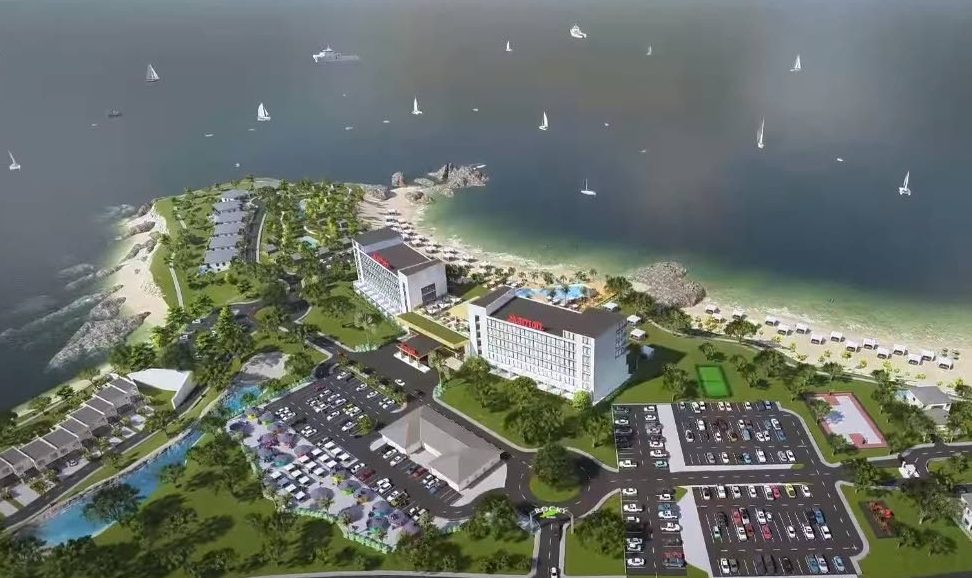
The much-touted $500 million hotel and property development at Rocky Point is expected to put Tobago’s struggling economy on a growth path, post covid19.
The development, bearing the Marriott brand, is being undertaken by Superior Hotels Ltd, a group of private developers who are footing the $500 million bill. Construction is scheduled to begin in 2023 on approximately 28 acres of land on the western side of Grafton Road and south of Pleasant Prospect. The land is being leased by Evolving Technologies and Enterprise Development Co Ltd (eTeck) for 99 years.
The project, which is expected to be completed in 2025, will comprise a 200-room hotel, 28 duplex residences, 11 single-family luxury villas and 12 fully-outfitted townhouses. It will also contain facilities for scuba diving, jogging, cycling, local food and craft among other amenities.
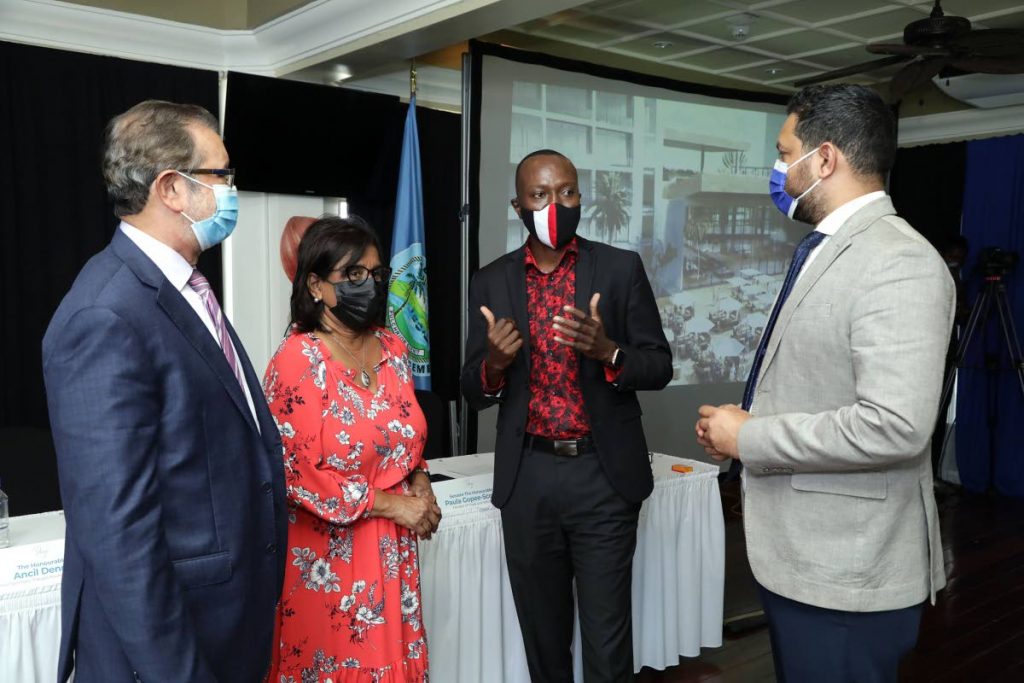
At a news conference last Tuesday at the Magdalena Grand Beach & Golf Resort, Lowlands, Government, THA officials and the Tobago Hotel and Tourism Association spoke glowingly about the project and its benefits for Tobago tourism sector.
But some stakeholders, citing environmental and financial factors, are sceptical about the development.
Critical nesting habitat for turtles
Niamh Vaughan, a Master of Science student in UWI’s Biodiversity Conservation and Sustainable Development programme, works alongside the conservation group, Save Our Sea Turtles (SOS) Tobago.
She said the group is deeply concerned about the potential negative impact of the development on the environment at Rocky Point.
Firstly, Vaughan said the beach at Rocky Point – Back Bay – is one of the few beaches in Tobago that does not currently experience pollution.
“It can truly be described as unspoiled, untouched and undiscovered,” she said quoting Tobago's tourism mantra.
Stressing SOS Tobago is not anti-development but pro sustainable development, Vaughan said while some innovate developments have loads of potential, “the sheer scale of this particular project raises a few significant concerns.”
She said although SOS Tobago is not privy to all of the information concerning the project, the group did see the conceptual designs which were made public.
Vaughan said Back Bay is a critical nesting habitat for leatherback and hawksbill turtles and has been monitored by SOS Tobago for the last 20 years along with two other beaches – Turtle Beach and Grafton.
She said according to statistics, 52 per cent of all hawksbill turtles and 17 per cent of all leatherback turtles nest at Back Bay.
Vaughan said Back Bay also has a fringing coral reef, off shore, which is a habitat for hawksbill and green turtles and other marine species.
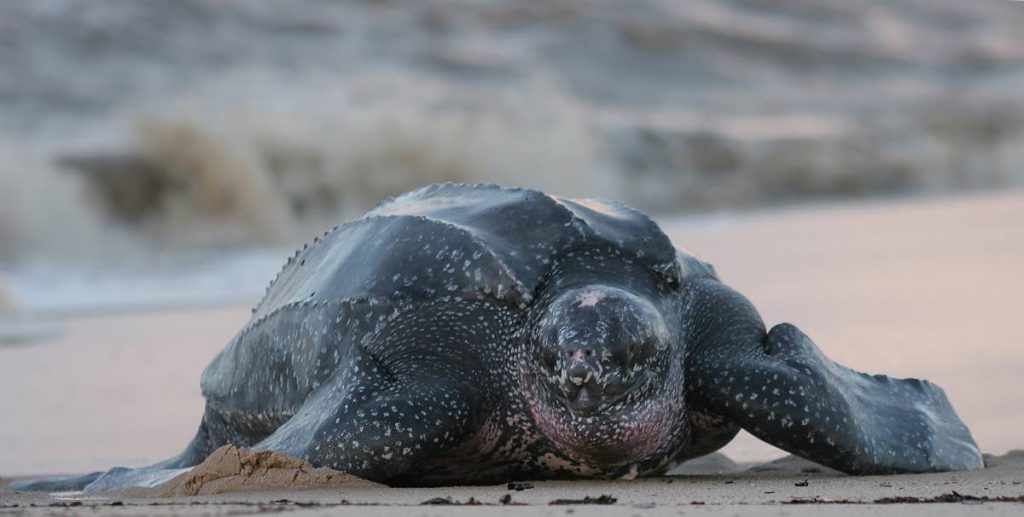
“So, all three turtles are environmentally-sensitive species, protected under the Environmental Management Act. That would be the context for why we are concerned about any potential development at the site.”
Vaughan said the group is also concerned about beachfront and shoreline management during and after construction, as well as the impact that could have on the beach, shoreline and fringing reefs.
“This is particularly concerning because there seems to have been an absence of planning for the sea turtles' use of the areas. There does not appear to be any natural buffer zones in the plan as presented.”
She added drainage mitigation and waste treatment during and after construction is also a pressing concern.
“That could impact the beach and the fringing reefs, particularly as it relates to erosion as well as sedimentation from run off affecting the coral reefs. Sedimentation can actually have major negative impact on reefs as well as any pollution that comes along with this water and runoff.”
Pleasant Prospect businessman Ricardo Maximin said he is also concerned about the potential impact the development could have .
He told Newsday last week’s unveiling of the project raised serious questions.
“My thought was – another development that probably does not have proper environmental awareness protocols,” he said.
Maximin said he also wondered about the status of previous developments, including empty hotels and investments made in other properties which were intended to not only increase Tobago’s quality room stock but enhance the island’s tourism profile.
He cited Our Sanctuary, Sou Sou Lands and Manta Lodge, Speyside, as examples.
“You have to ask yourself: ‘Where is all of this money going, and why did they make all of these investments? And they now coming to invest in another hotel for the same hospitality sector. I don’t know who has the interest but it cannot be for the people or Tobago itself.”
Maximin, who owns the popular Moon Over Water Bar, said he was also concerned about the safety of marine life and bathers when the project is completed.
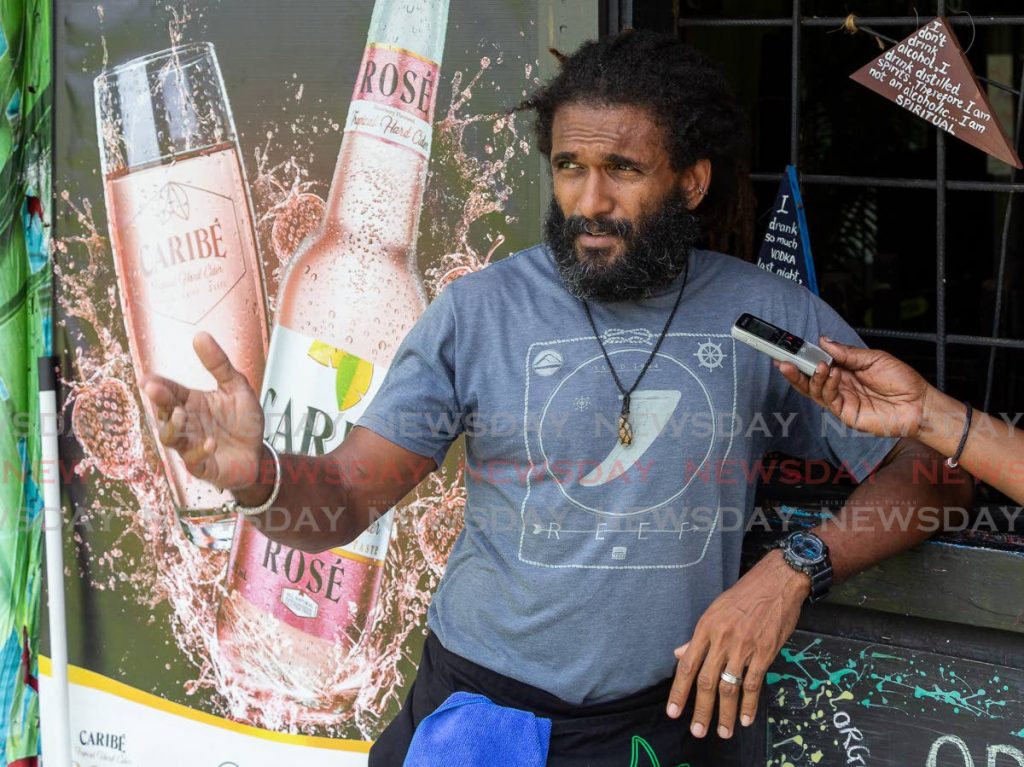
“Have they put things in place for the turtles, the reef, the surfing camp, the beach of itself?” he asked.
“From my experience and even those who know more than me – the beach is dangerous. Back Bay is not really the place where you would go to swim with your family. It looks nice and scenic but you cannot go there and play the fool. You have to know what you are about.”
During its construction, the hotel is expected to employ about 750 people and 250 workers when it is completed.
Maximin acknowledged the project will help struggling nearby businesses and also provide jobs for young Tobagonians.
“I know that for a small village around with a construction project, you probably will make some kind of short-term money. It will create jobs in the area because people will have to buy food. So, your bar, restaurant or shop might make money in that period but the long-term effect I think, for the most part, is its impact on the environment.”
He asked, “Does it really make sense to build something new with all of these incomplete projects they already have that cost $10 million, $50 million and $100 million, as if is monopoly money – and during covid19 where people already ‘ketching it’ and the bailout from the Government is few and far between?”
Maximin said as far as he knows, residents of the nearby communities were not consulted about the project.
Strolling along the beach front at Back Bay, taxi driver Francis Guerra said he is also sceptical about the development. He believes the new hotel should not be a priority at this time.
“I think money is being wasted on this project, especially with covid19 where economies are dropping. Even our economy is not so stable,” he told Newsday.
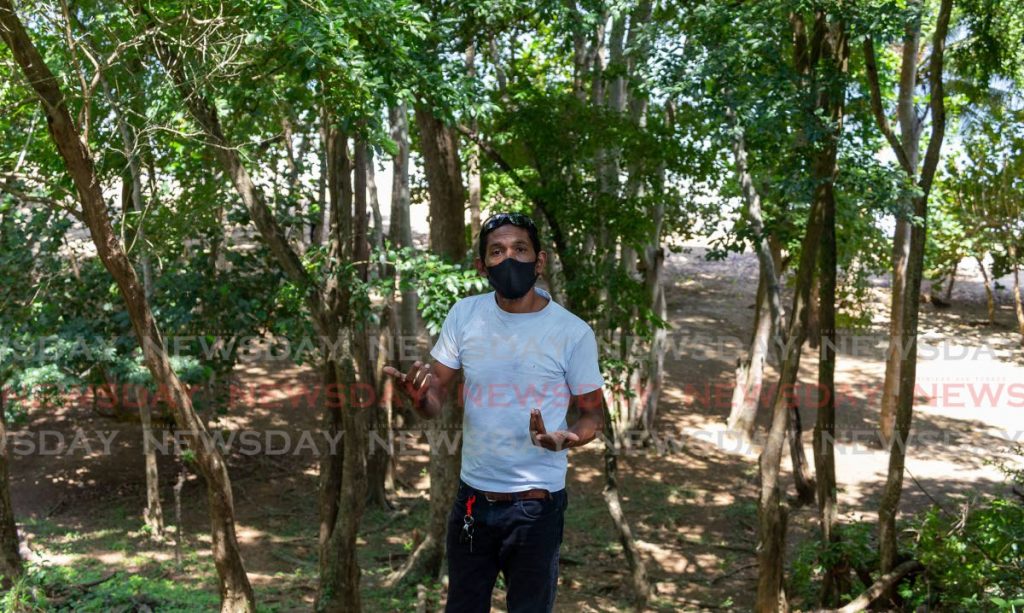
Guerra observed that many large hotels and guesthouses, including Coco Reef Resort & Spa, have temporarily shut down operations while others have gone out of business with little or no prospect of reopening.
“With covid19, we no longer have the influx of tourists so what is the purpose of that magnitude of project. To me, it is not really a viable and wise project for Tobagonians because there are a lot of things in the society that need fixing and unemployment is rising rapidly.”
Told that the hotel is expected to benefit Tobago’s tourism sector and the island’s economy in the long term, Guerra said, “Not only our economy is on the decline. The majority of economies in the world are also on the decline. So, I don’t think people will be holidaying as they used to. I think a lot of people will prefer to stay within their quarters, where foreigners are concerned, as opposed to coming to Tobago for a holiday.”
As such, Guerra believes it will be a long time before Tobago experiences the tourist arrivals it once enjoyed.
But Tobago Tourism Agency Ltd CEO Louis Lewis believes the benefits of the project outweigh its disadvantages.
“There is a level of excitement, particularly for people who understand the significance of this initiative,” he said.
“It really creates a demand that will allow us to have better connectivity with the source markets in which we operate and that is one of the things that we are happy about. The Marriott brand gives some recognition to the destination and that will be important for us.”
Lewis said the project will also create avenues for exports in agriculture and other sectors.
“When produce ends up at a hotel, it technically exports because we pay for the foreign exchange. So, it is about creating entrepreneurship and giving greater visibility to the products that we have and marketing the cultural heritage. So, there are several ways in which this is going to be part of what I consider to be a game changer.”

Comments
"Environmental, economic concerns over $500m Marriott Tobago project"